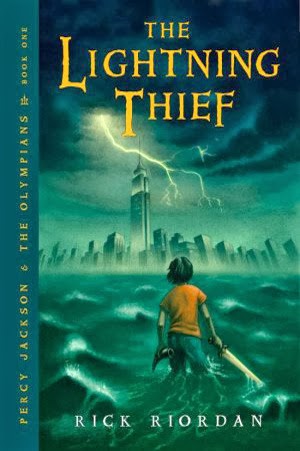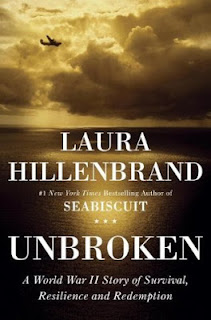Neil Gaiman shared a very interesting story at BEA last week, and an article I read via Shelf Awareness made me want to share it with you:
Neil Gaiman: Why Fiction is Dangerous
"Fiction is dangerous because it lets you into other people's heads," Gaiman said. "It shows you that the world doesn't have to be like the one you live in." At the first nationally recognized science fiction convention in China in 2007, Gaiman took a party official aside and said, "While not actually illegal, science fiction is regarded as dangerous and subversive in China. Why did you say yes to a science-fiction convention?"
The party official answered, "In China, we're really good at making things people bring to us, but we don't invent, we don't innovate." When Chinese party officials visited Google, Apple and Microsoft, they asked what the executives read as children. The official continued: "They all said, 'We read science fiction. The world doesn't have to be the way it is right now. We can change it.' " "That," said Gaiman, "is the big dangerous thing." (by Jennifer M. Brown)
I never thought of fiction as being dangerous. But I like the connection between innovators and inventors and science fiction books. Seeing the world as something you can change. Reading science fiction--or really, any kind of fiction--can broaden your perspectives and make room for crazy, impossible things.
Additionally, this story holds a powerful lesson for reluctant readers. Seeing examples of executives at recognizable brands such as Google, Apple, and Microsoft can help readers see that reading is part of being successful. Reading science fiction growing up was perhaps part of what helped those executives to become the great innovative and inventive (and extremely financially successful) people they are today.
Science fiction, or even just fiction, or really--even just reading in general-- can be dangerous! It can also be lucrative, world-changing, mind-enlightening, perspective broadening, etc., etc. So here's a short selection of science fiction reads that are perfect for readers of all types--reluctant or not.
Ender's Game
by Orson Scott Card
Desperately preparing for a defense against another attack from an alien race, Ender Wiggin is part of a school that develops children into battle generals and a new kind of soldier. This book is a classic, and a basis for a lot of other science fiction books. Plus it's going to be a movie soon! (Watch the trailer here)
The 5th Wave
by Rick Yancey
Cassie is one of the survivors of the first four waves of alien attacks. She has to find her brother, and trusting no one is the name of the game until Evan Walker shows up. Meanwhile, Zombie does his best to lead Nugget and other kids as part of a defense against the 5th wave of attacks. But trust is often misplaced, or not given to those who deserve it.
The Adoration of Jenna Fox
by Mary E. Pearson
Jenna Fox wakes up from a coma, remembering an accident that happened over a year ago. Things are different, and she has to figure out what is going on with herself. She begins to question those around her as well as her own identity, and confront things she never thought were possible in the area of bio-medicine and humanity.
Across the Universe series
by Beth Revis
Amy wakes up early from a frozen sleep aboard the spaceship Godspeed, and has to find out who it was that tried to wake her up--or kill her. Elder, the future leader of the ship, tries to help Amy in discovering the secret behind what is happening.
Cinder
by Marissa Meyer
It's a retelling of Cinderella, but there's much more that involves cyborgs as well as lots of juicy secrets and volatile diplomatic dynamics between a futuristic China and Lunar (a Moon kingdom).
Insignia
by S.J. Kincaid
The earth is in the middle of WWIII, and it's natural resources are almost at an end. In a fight to gain access to resources elsewhere in the solar system, the 14 year old Tom Raines, with exceptional visual reality gaming skills, might be able to help.



.jpg)













.jpg)






